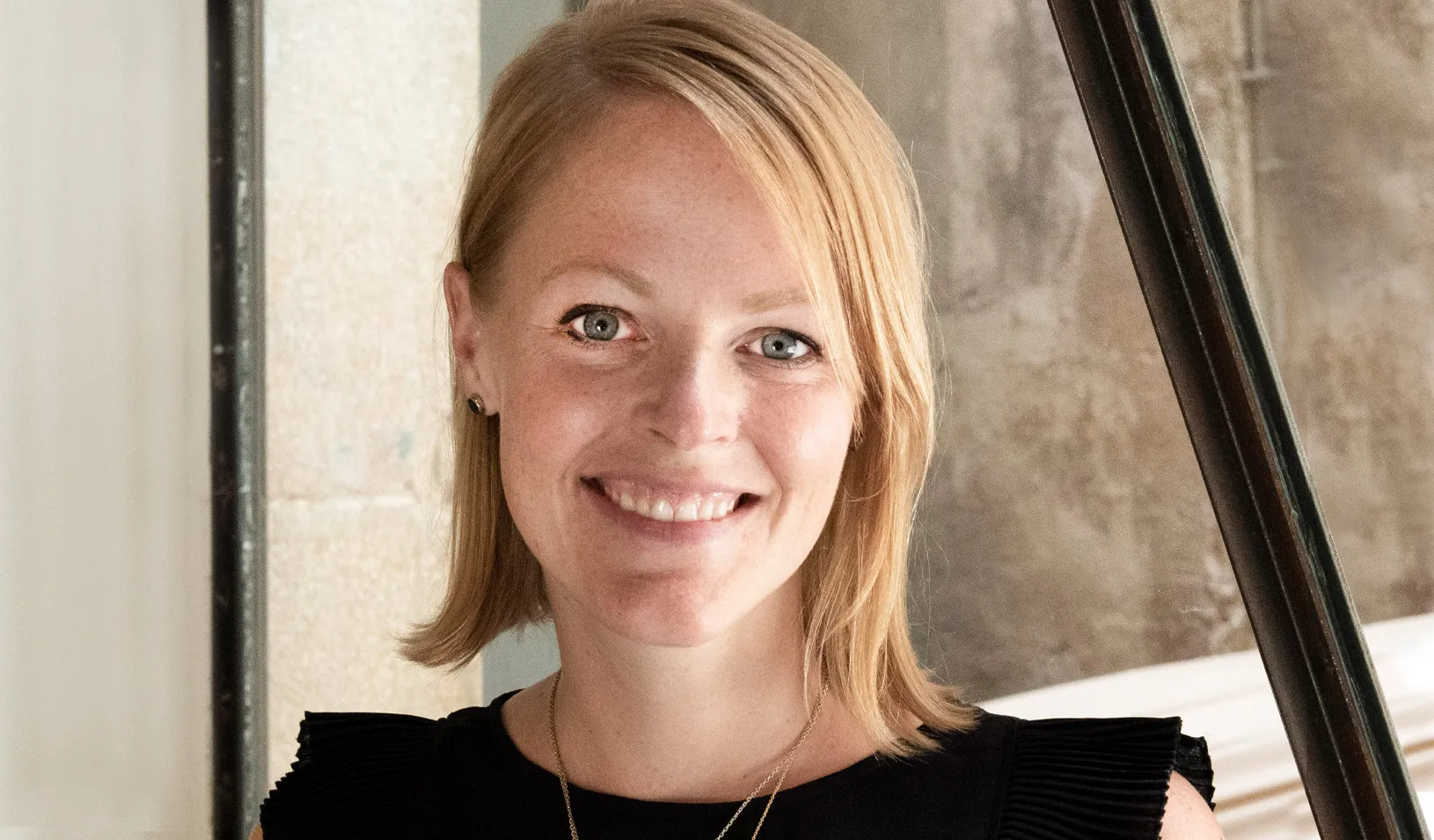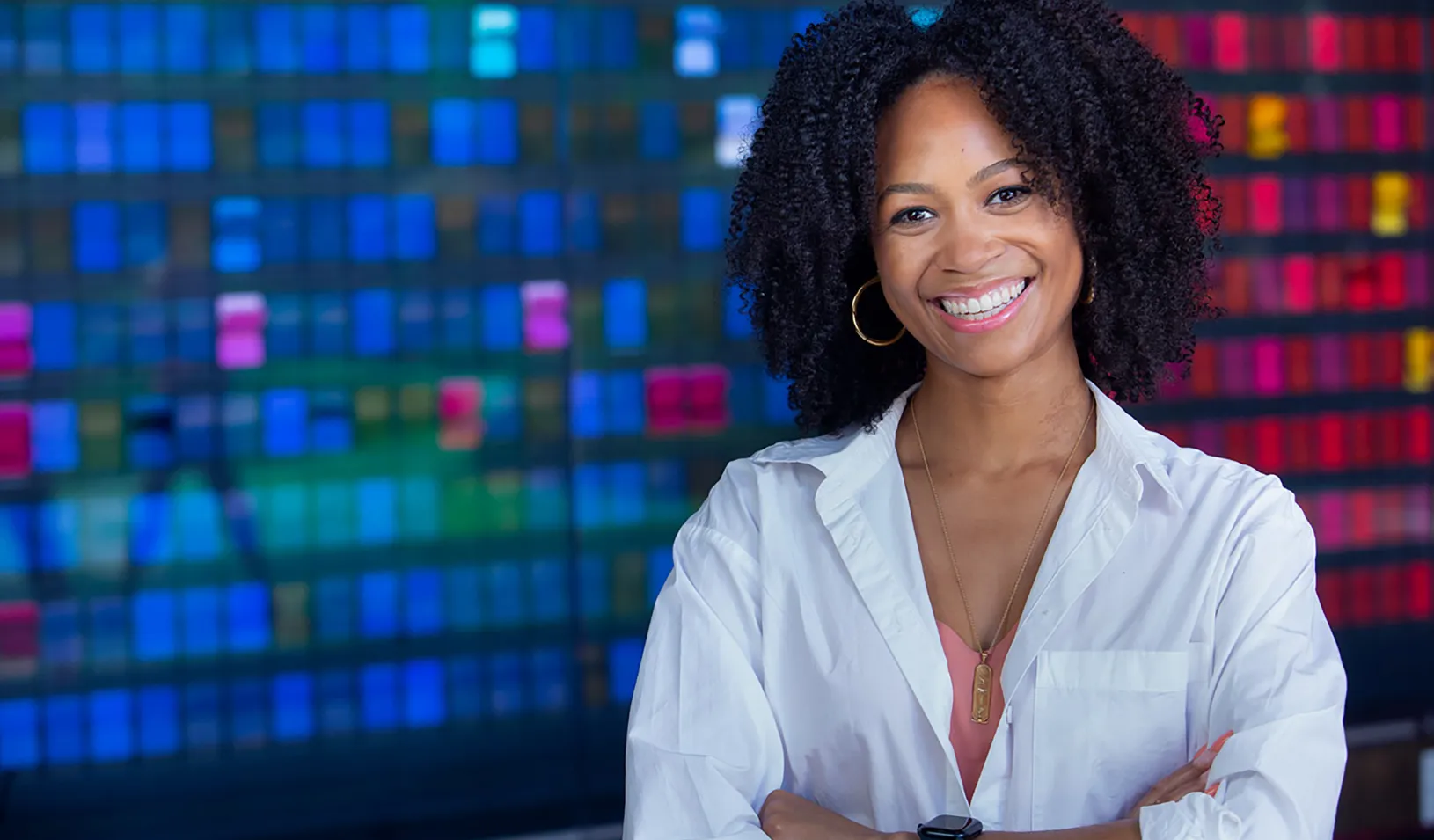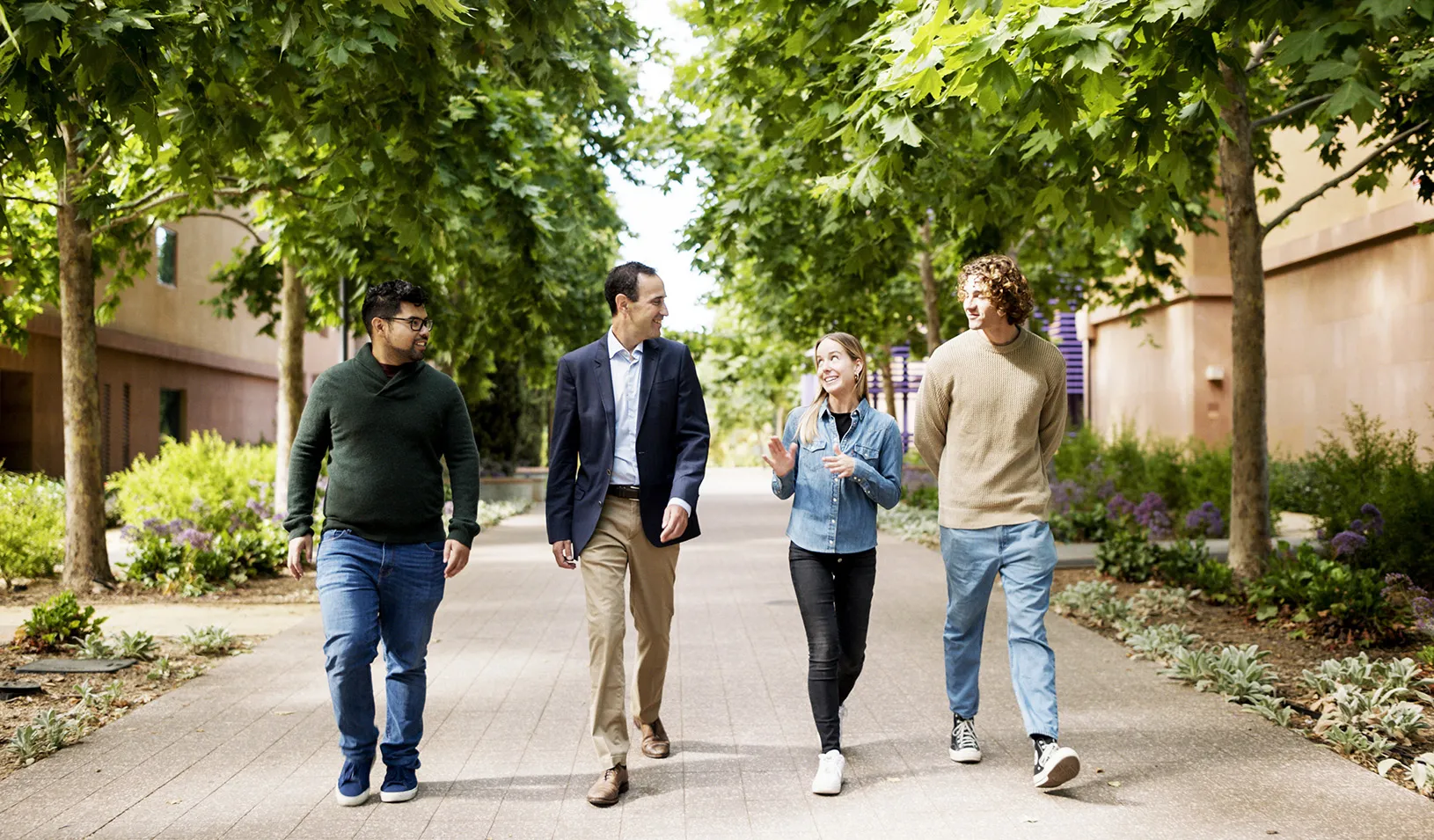Jenna Nicholas, MBA ’17: Investing the Effort to Understand Marginalized Communities’ Funding Needs
Impact Experience, the 2017 Social Innovation Fellow’s latest venture, uses the power of local knowledge to help plan effective, caring partnerships.
August 03, 2017
2017 SIF Fellow Jenna Nicholas | Stacy Geiken
Before going to business school, Jenna Nicholas worked in impact investing. One initiative involved helping to build a coalition of foundations that would agree to divest the fossil fuel holdings in their endowments and invest in cleaner energy instead.
As part of that work, she traveled to New Orleans and visited the Louisiana Bucket Brigade. The grassroots organization, which aims to clean up the Louisiana coastline, draws members from communities affected by the petrochemical industry. In 2015, it identified 137 people who had died or suffered serious health consequences because of oil contamination of the water and air. They lived in a zone dotted with oil refineries, whose nickname, Cancer Alley, hints at the suffering.
“The people I met talked about how much hope it gave them to think about the divest-invest movement,” said Nicholas, a consultant and entrepreneur who graduated in 2017 from Stanford Graduate School of Business with an MBA. “Knowing that there was a large-scale effort to address the problems they experienced at such a personal level amplified the voice and momentum of their work.”
In visits to foundations such as the Rockefeller Brothers Fund, she shared the stories of people affected by oil pollution. Eventually, the Rockefeller Brothers Fund and more than 170 foundations representing $10 billion in assets under management agreed to the divest-invest initiative, a movement that had been incubated by Wallace Global Fund.
“When people of different backgrounds, resources, experiences, and forms of wisdom — from the conference rooms of New York to the coal mines of West Virginia — are connected, the results are powerful,” Nicholas said.
She hasn’t stopped working on building those bridges ever since. Nicholas founded Impact Experience in order to connect marginalized communities and funders who care. When a leader in a community suffering from economic malaise or environmental injustice reaches out to Nicholas, her organization convenes investors, entrepreneurs, and innovators from inside and outside the community. In short workshops, Impact Experience helps build trust and map investment and partnership opportunities.
“The power of convening people who aren’t often in the room together is incredible,” Nicholas added. “People want to find a way to channel the energy and frustration they feel about their circumstances. It’s a question of saying, ‘What are we standing for?’ instead of, ‘What are we standing against?’ ”
The Problem
The burgeoning impact investing field calls for foundations, asset managers, and individuals to put their money into activities that yield financial returns and social and environmental impact. Since 2013, assets under management by firms that consider themselves private-equity impact investors have swelled from $2.8 billion to $12.4 billion.
But their decisions are rarely informed by conversations with people who could benefit from impact investments: those in marginalized communities, such as former coal mining centers or the degraded coastline of South Carolina, says Nicholas. She began working in impact investing shortly after receiving her undergraduate degree from Stanford University in 2012.
“There are a lot of impact investing conferences,” said Nicholas. “But while local people know best what the needs are, they don’t have access to the networks and resources that can catalyze new opportunities. They don’t have a seat at the table.”
Income inequality in the United States and around the world is increasing, and many communities don’t get to share in the wealth and opportunity being generated in places like Silicon Valley.
The ethical implications of this gap concern Nicholas.
“Investors often employ a top-down approach to investing without understanding the wisdom and needs of marginalized communities. Implicit biases influence funding decisions, to the detriment of the uneducated, women, people of color, and the poor,” she said.
In speaking to people who work in impact investing, particularly in the divest-invest movement, she realized that many of these investors shared her concerns. But those concerns usually got pushed aside.
“It dawned on us that at the macro level, impact investing is having an impact, but a top-down approach alone is not enough. We are missing critical voices and can do better,” Nicholas said.
The Novel Approach
After receiving an invitation to work with a community, Impact Experience brings together 20 to 40 people, representing investors, entrepreneurs and advocates, and local community leaders, for two- to three-day gatherings designed to build trust and to map out opportunities.
Impact Experience has worked in communities including New Orleans; Anchorage, Alaska; and Oaxaca, Mexico. In Williamson, West Virginia, after an Impact Experience meeting in July 2016, partnerships emerged that focused on broadband connectivity, access to healthy food, and worker retraining for unemployed coal miners. Over $7 million was invested in the community.
Dr. Donovan Beckett, CEO of Williamson Health and Wellness Center, invited Impact Experience to Williamson, in Mingo County.
“We were interested in bringing impact investors and companies to explore opportunities to help drive economic development in the community,” he said.
Between 2012 and early 2016, Mingo County had lost more than 2,000 jobs, representing over 25% of its workforce. On top of that, the community was battling some of the highest rates of obesity, diabetes, hypertension, and opioid abuse in the country. Some of the Impact Experience participants were Cisco, SolarCity, Calvert Funds, the National Renewable Energy Laboratory, Deloitte, the Appalachian Regional Commission, and a preacher.
Nicholas says the $110,000 Social Innovation Fellowship she’s receiving from Stanford GSB will support her work to scale Impact Experience to reach communities in South Carolina, India, the Philippines, and northern England. The company also will invest in building systems to evaluate the needs in the communities where it works, and to track the results of investments and partnerships.
The Innovator
Nicholas’ gift for convening people comes naturally.
The daughter of a middle-class single mother, Nicholas was often present as her mother worked in real estate in London. “I would take the minutes in her meetings,” she said.
Her mother and her grandmother inspired in her a passion for social justice. “They have both strength and warmth and were very important role models for me,” Nicholas said.
They challenged her from a young age to develop assertiveness and fluency as an advocate for others. “They always pushed me to do things a little bit out of my comfort zone, but it was done lightly. I still speak to them both every day.”
As a young girl, Nicholas took part in a Bahá’í-inspired program, Transformation for Peace, which brings together young people from all around the world to reflect on their values and purpose. This inspired her to spend time in India, Congo, and China working on social and economic development projects.
In her first job after college, she worked with Wayne Silby, the founder of Calvert, an asset management firm that has been a pioneer in impact investing. She helped him organize salons that brought people together to talk about the impact they wanted to make with their lives and money. Nicholas went on to found her own impact investing consulting firm, Phoenix Global Impact.
She then began her work in the divest-invest movement, which includes foundations, universities, faith-based groups, pension funds, sovereign wealth funds, and individuals. It has catalyzed a shift of more than $4.3 trillion in assets under management from fossil fuels to new-economy solutions.
Her experience inspired her vision to reshape the impact investing field, engaging more deeply in listening to and developing opportunities with those in marginalized communities.
“We want to co-create impact,” Nicholas said. “Inclusion and intersectionality are vital, because we have found that solutions that grow out of that approach work better and build respect among all the parties.”
Through Impact Experience, she intends to redirect resources to long-overlooked communities, shift mindsets, and bring new voices into the conversation.
“As the impact investing field evolves, local needs and local knowledge must be at the center,” Nicholas said, “or we’ll miss the point.”
— Elizabeth MacBride
Jenna Nicholas received an MBA from Stanford GSB in 2017. She was awarded Stanford GSB’s Social Innovation Fellowship, which provides up to $180,000 in funding, along with advising and support, to graduating students who want to start a nonprofit venture that addresses a pressing social or environmental need during the year after graduation.
For media inquiries, visit the Newsroom.
Explore More
Erin Nixon Joins Stanford GSB as Assistant Dean of Admissions

Nia Rose Froome, MBA ’23: Making Local, Fresh Food Available for All

New Research Fund Promotes Responsible Leadership for the Next Century
